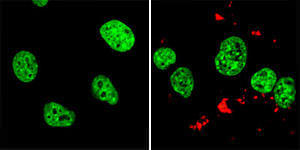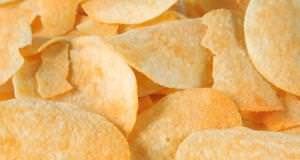Too Much Sitting May Be Bad For Your Health
Lack of physical exercise is often implicated in many disease processes. However, sedentary behavior, or too much sitting, as distinct from too little exercise, potentially could be a new risk factor for disease. The August issue of the American Journal of Preventive Medicine features a collection of articles that addresses many aspects of the problem of sedentary behavior...
Surprising Culprits Behind Cell Death From Fat And Sugar Overload
Excess nutrients, such as fat and sugar, don't just pack on the pounds but can push some cells in the body over...
Diabetes Drug Side Effects Traced To Fat Action
For better or worse, a popular class of anti-diabetic drugs does more than lower blood sugar. One known as rosiglitazone (trade name Avandia) has been in the spotlight for its possible link to increased cardiovascular events, but it also seems to come with unexplained vascular benefits and an unwelcome tendency for weight gain.
Body’s Natural Marijuana-Like Chemicals Make Fatty Foods Hard To Resist
Recent studies have revealed potato chips and french fries to be the worst contributors to weight gain -- and with good reason. Have you ever wondered why you can't eat just one chip or a single fry? It's not just the carbohydrates at fault.
Changes In Specific Dietary Factors May Have Big Impact On Long-Term...
In a series of three separate studies looking at how changes in multiple dietary and other lifestyle factors relate to long-term weight gain, Harvard School of Public Health (HSPH) researchers found that modest changes in specific foods and beverages, physical activity, TV-watching, and sleep duration were strongly linked with long-term weight gain. Changes in diet, in particular, had the strongest associations with differences in weight gain.
Answers For Treating Obesity-Related Diseases May Reside In Fat Tissue, Study...
Researchers at Boston University School of Medicine (BUSM) and Boston Medical Center (BMC) have shown that the quality -- not just the quantity -- of adipose, or fat, tissue is a significant contributing factor in the development of inflammation and vascular disease in obese individuals. The study, which is a special feature on the iPad version of the Journal of the American College of Cardiology, provides compelling evidence that the answer to treating cardiovascular disease and other obesity-related disorders, such as type 2 diabetes and cancer, might be found in the adipose tissue itself.
Soluble Fiber Strikes A Blow To Belly Fat
All fat is not created equal. Unsightly as it is, subcutaneous fat, the fat right under the skin, is not as dangerous to overall health as visceral fat, the fat deep in the belly surrounding vital organs. According to a new study by researchers at Wake Forest Baptist Medical Center, the way to zero in and reduce visceral fat is simple: eat more soluble fiber from vegetables, fruit and beans, and engage in moderate activity.
Study Shows Cutting Down On ‘Carbs’ Reduces Body Fat
A modest reduction in consumption of carbohydrate foods may promote loss of deep belly fat, even with little or no change in weight, a new study finds. Results of the study are being presented at The Endocrine Society's 93rd Annual Meeting in Boston.
Shape Up the Quick Way: Lose Weight Fast For Lasting Results...
If you thought the best way to lose and maintain weight was the slow and steady approach, think again. A new study by Lisa Nackers and colleagues, from the University of Florida in the US, suggests that the key to long-term weight loss and maintenance is to lose weight quickly, not gradually, in the initial stages of obesity treatment. Their findings are published online in Springer's International Journal of Behavioral Medicine.
Obese Dieters’ Brain Chemistry Works Against Their Weight-Loss Efforts
If you've been trying to lose weight and suspect your body's working against you, you may be right, according to a University of Illinois study published in Obesity.
Fat Substitutes Linked To Weight Gain In Rats
Synthetic fat substitutes used in low-calorie potato chips and other foods could backfire and contribute to weight gain and obesity, according to a study published by the American Psychological Association.
Insulin Action On Brain’s Reward Circuitry Linked To Obesity
Researchers reporting in the June issue of Cell Metabolism, a Cell Press publication, have what they say is some of the first solid proof that insulin has direct effects on the reward circuitry of the brain. Mice whose reward centers can no longer respond to insulin eat more and become obese, they show.
















